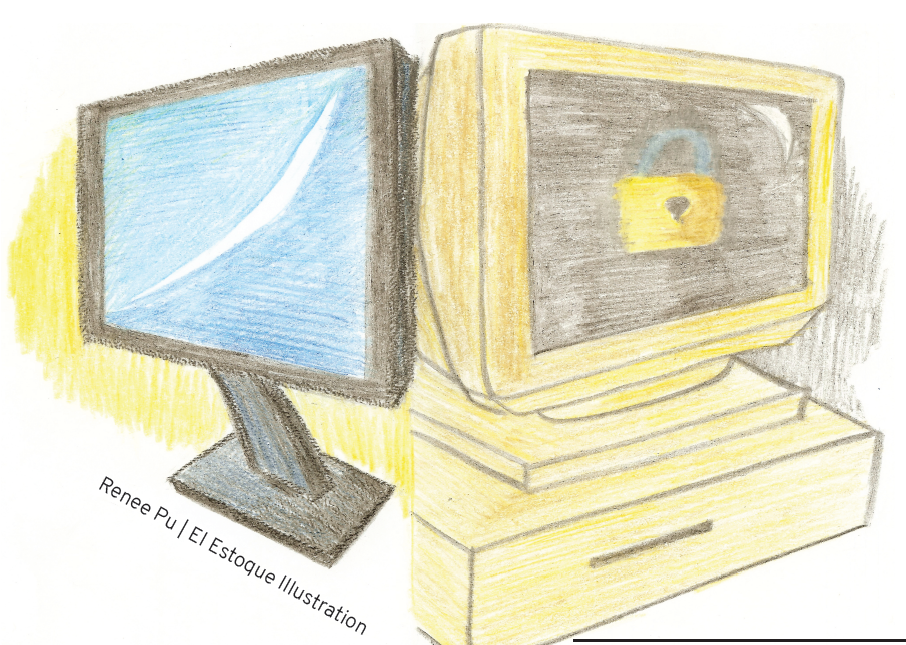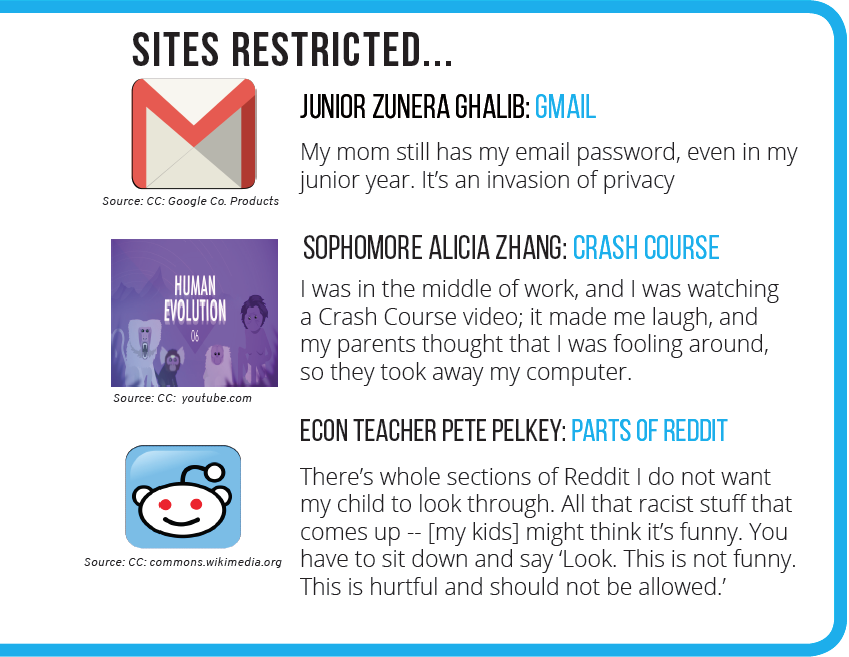
Parental controls are an issue junior Zunera Ghalib has tried to combat since elementary school. When her parents blocked her email, she created a fake one; when her parents locked certain sites, she would guess the passwords and bypass them; she never stayed disconnected long because she always had a solution around her own restrictions.
Protection and freedom — rivaling priorities when it comes to the internet. Some parents know of online predators; others simply want their children to do well in school. Ghalib was of the latter case. Through the parental control program Norton Family Protection, Ghalib was unable to access all social media sites except for email. These limitations built distrust between her and her parents.
“I mean, they did it because they wanted me to focus on schoolwork,” Ghalib said, “but people learn how to regulate themselves, and when you have your parents do it for you, it just makes you angry — it hurts when you realize your parents don’t trust you.”
Her parents distrust, according to Ghalib, stems from the ever present technology gap separating the two generations. In the past few decades, technology has made incredible leaps forward. But because of this sudden growth, many parents lack a level of understanding when it comes to tech use and their kids. This is most evident with social media, which has now become a pivotal part in day to day communication. Her parents’ misunderstanding kept Ghalib isolated from many groups when she was younger, especially when her peers would chat through Facebook.
“I didn’t really have any way of contacting people outside of school,” Ghalib said. “I think it’s important that parents realize that while academics is important, so are other things like social interaction and entertainment, especially as children.”
This distrust, Ghalib felt, could’ve been bridged with just a simple conversation. She always felt that these restrictions led to a divide that she and her parents could never quite breach.
Silicon Valley is home to huge tech corporations: Apple, Oracle, and Microsoft, to name a few — technology is an integral part of the Southern San Francisco Bay. And yet, despite Cupertino being surrounded by the industry, sophomore Alicia Zhang notices the same tech disconnect with her own parents. She understands that a lot of misunderstandings that come with parental control stem from her parent’s own confusion. Even though her parents are familiar with technology as software engineers, Zhang still feels like her parents are caught in a technological gap that they cannot escape.
“Adults don’t [have as much of a grasp on technology as kids do],” Zhang said. “When they grew up, they were used to [having no technology], so now they need more time to get used to new tech. And once they get used to it, more technology comes at them, so there will always be this gap of understanding compared to adults and kids.”

Economics teacher Pete Pelkey says that as kids grow up, you have to trust them to do the right thing. The internet is far too complex to ever fully regulate, especially with his children, who Pelkey believes will always know more about technology than him.
“There is so much weird stuff on the internet that you can find that they’d think is appropriate to listen to or watch.” Pelkey said, “But the internet is a much more natural thing to them than me, which definitely puts me at a disadvantage.”
When it comes to teenager’s rules, Laura Malone, parent of senior Ally Malone, believes in the saying “if there is a will, there is a way.” A big reason why Laura thinks teenagers don’t trust adults is that adults have a tendency to overspeculate. They get suspicious, and they overreact, which leads to many teenagers to widen the gap between them and their parents.
Laura has one important internet rule: she has to be able to follow her kids on social media. While this might be seen as controlling, both Ally and Laura believe this encouraged a more open relationship between them.
“My parents were more lenient about it, which I think has definitely helped our relationship.” Ally said, “I definitely think that some control is necessary, but there should be a good balance between protection and freedom.”
Laura agrees with Pelkey that adults will always have to catch up when it comes to technology. But she feels that it is her responsibility as a parent to simply instill values like common sense and independence.
“I think kids need to learn to self regulate,” Malone said. “If you avoid [these conversations], you tend to shelter them in a way that doesn’t prepare them for what lies ahead.”







